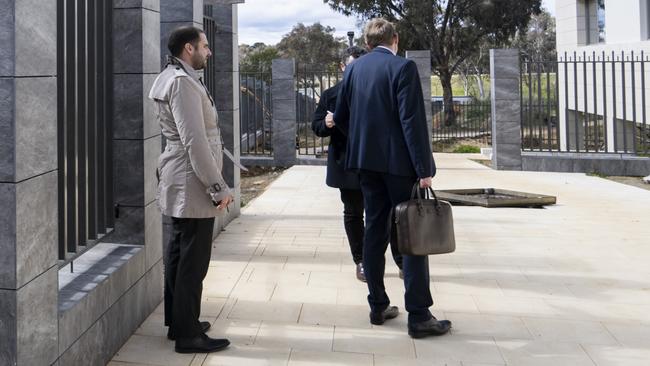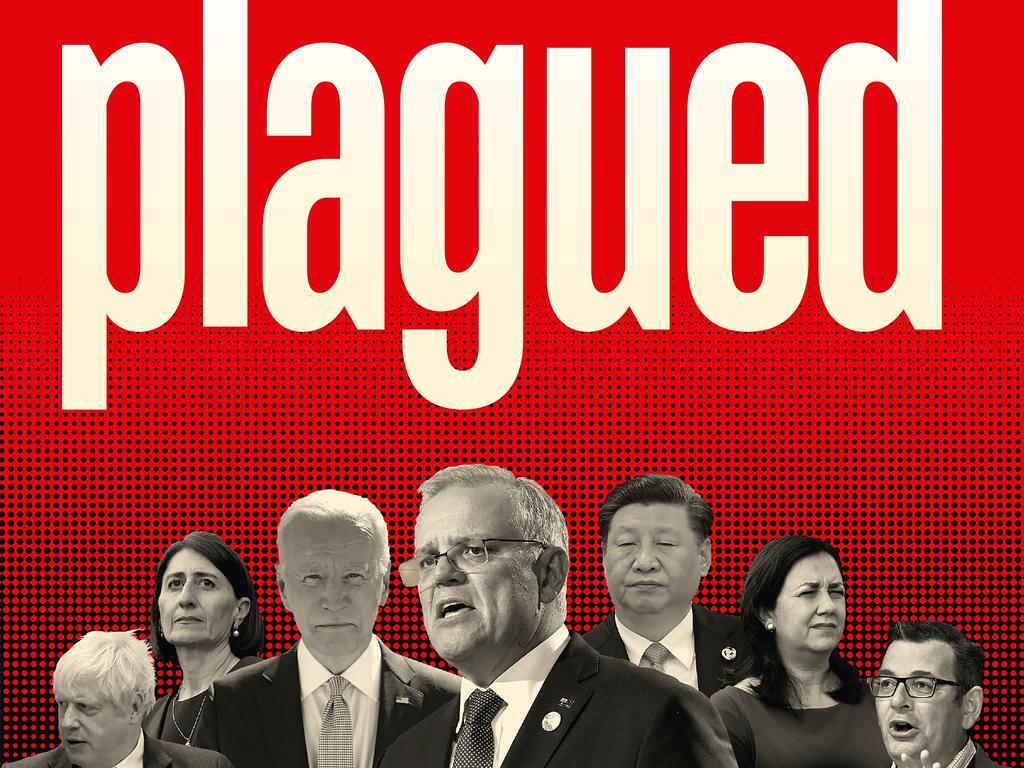Russia cries foul over embassy ‘spy bunker’ bid
Federal authorities waged a decade-long bureaucratic battle with Russia to stop it building its new embassy on a prime site.

Federal authorities waged a decade-long bureaucratic battle with Russia to prevent it from building its planned new embassy on a prime Canberra site that strategists say would have become the Kremlin’s new espionage headquarters in Australia.
Russian embassy officials have provided details of the country’s failed attempts to bring in security personnel and contractors to work on the “sensitive” building project, as Australia used the Kremlin’s fears that the structure would be bugged to ultimately stymie the development.
A day after the National Capital Authority issued an eviction notice to kick the Russian Federation off the prime diplomatic block under its “use it or lose it” policy, two Russian embassy officials gave The Australian an exclusive tour of the fenced-off Yarralumla site.
“Every state would be cautious about the security of the information which is inside this building,” the more senior official said.
But despite Moscow’s rich history of using its embassies as spy bases, he claimed Russia’s activities in Canberra were of a purely diplomatic nature and “in full compliance with the Vienna Convention” governing friendly relations between states.
The officials, who asked not to be named, said they wanted to showcase the near-completed consular services building that occupies a small section of the site.

The senior official said that despite receiving planning approval to commence construction on the main embassy building in September 2011, Russia had been unable to commence work because Australian immigration authorities blocked multiple rounds of visa applications for key project personnel.
A Russian contractor was initially engaged to undertake the work, “because frankly speaking, embassies are sensitive places”, the senior official said.
But the “unconstructive visa position of the Australian state” frustrated efforts to progress the project, providing only short-term visas for “architects, engineers and planners”, he said.
When those individuals sought fresh visas, they were denied entry, he said, so the contractor “had to find new people”.
The official pushed back at suggestions the contractor’s workforce would have included intelligence services personnel, declaring: “If he is a spy he wouldn’t get a visa at all, but they were given short visas.”
About five years ago, Russia accepted its construction contractors would not be allowed to work on the site and hired a local company to undertake the work, the official said. But he said Russia still needed to get its security personnel into Australia to oversee the security of the work.

“Of course to build the chancery, the main building, we needed some visas,” he said. “At the end of the day we didn’t get the necessary staff here.”
The modern consular services building, which includes four service windows for visa applicants and offices for consular staff, is a low-security facility that did not require certification by Russian security personnel.
The building is partially furnished but has not been connected to the electricity grid or mains water. The future of the multimillion-dollar structure is now in question after the NCA gave Russia 20 days to vacate the site.
The decision comes amid Australian government sanctions on more than 500 Russian individuals and entities due to Vladimir Putin’s invasion of Ukraine.
The embassy, which will continue to operate from its current location in the nearby suburb of Griffith, is taking legal advice on whether it can challenge the eviction notice.
ANU emeritus professor Paul Dibb, a Russia specialist and former ASIO counterintelligence officer for more than 20 years, said there was “no difference between a Russian intelligence site and a Russian embassy”.
He said Moscow’s push to get the consular office up and running was believed to be a ploy to operationalise the site.
“And then, of course, they would go into it with their diplomatic staff, and that block of land would become Russian territory,” he said, paving the way for the entry of Russian contractors to complete the project.
ANU intelligence studies professor John Blaxland said he expected Russia might retaliate for the NCA’s decision – which was flagged with key federal departments – by sending home some of the Australian embassy in Moscow’s already skeleton staff.
“I suspect they will look to extract some pound of flesh by perhaps expelling or making things very difficult for the renewal, at the very least, of a couple of our diplomats,” he said.








To join the conversation, please log in. Don't have an account? Register
Join the conversation, you are commenting as Logout